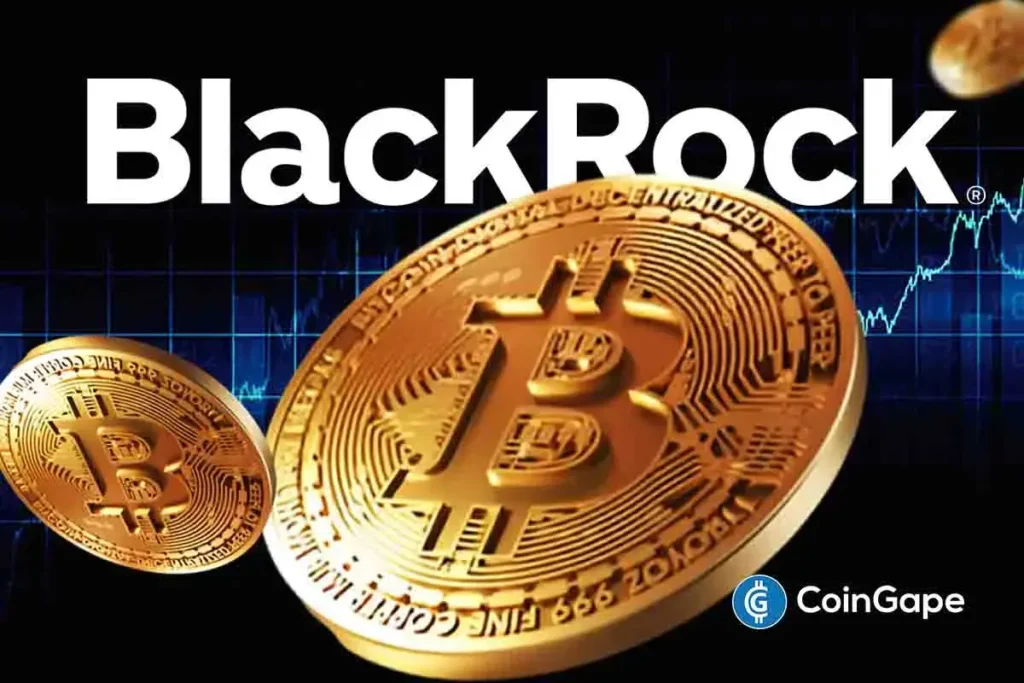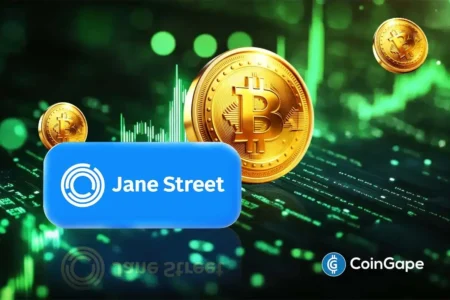The Surge of BlackRock’s iShares Bitcoin ETF: A Game-Changer in the Crypto Market
In recent times, BlackRock’s iShares Bitcoin ETF (IBIT) has made a significant impact on the financial landscape, boasting impressive net inflows exceeding $52 billion and assets under management (AUM) surpassing $72 billion. This explosive growth has positioned IBIT as a frontrunner in the ETF space, outstripping even BlackRock’s own flagship iShares Core S&P 500 ETF (IVV) in terms of annual fee revenue. As of now, IBIT has generated approximately $186 million in annual revenue, marking a milestone within just 18 months of its launch. This remarkable success story suggests a growing acceptance of Bitcoin amongst institutional investors and opens up discussions about the future of cryptocurrency investments.
IBIT vs. Traditional ETFs: A Comparative Analysis
One notable aspect that differentiates the iShares Bitcoin ETF from traditional ETFs is the fee structure and the assets it manages. While IBIT carries a fee of just 25 basis points, it also manages nearly 700,000 BTC, rendering it a more lucrative option in terms of revenue generation than the S&P 500 ETF, which charges a lower fee of 3 basis points but manages significantly more AUM at $609 billion. The surge in revenue and popularity of IBIT is attributed to the growing interest in Bitcoin as a legitimate investment vehicle, with many investors seeking exposure to cryptocurrency through regulated instruments.
Record Inflows Signal Market Confidence
Over the past week, the Bitcoin ETF market has witnessed remarkable inflows, totaling over $2.2 billion across all U.S. issuers. Specifically, this week’s data revealed that BlackRock’s IBIT attracted $153 million, second only to Fidelity’s FBTC, which saw inflows of $165 million. This phenomenon suggests that institutional players are betting on Bitcoin’s future, further validated by sustained demand within the market. Experts point to a possible wave of new crypto ETFs, with increasing anticipation surrounding approvals for tokens like XRP and Solana, indicating a robust ecosystem for cryptocurrency investments.
The Future of Bitcoin Pricing
As institutional investment continues to rise, the price of Bitcoin is currently stabilizing around $107,500, a vital juncture where both bullish and bearish sentiments are competing. The approaching deadline for a 90-day Trump tariff pause could influence market dynamics, making this period critical for potential price movements. Influential figures in the crypto landscape, such as trader Arthur Hayes, have predicted that we may be on the brink of a Bitcoin rally driven by regulatory changes and macroeconomic factors. His analysis emphasizes the importance of developments like the U.S. Treasury’s SLR exemption as a catalyst for renewed bullish sentiment in the market.
Expert Insights and Market Trends
The demand for Bitcoin ETFs aligns with broader trends in the crypto markets, as reported by S&P Global, and suggests bullish sentiment is not only localized but global. A potential "crypto ETF summer" is being speculated, with analysts like Nate Geraci forecasting further approvals that could pave the way for mainstream adoption of cryptocurrency. As interest among institutional investors grows, traditional apprehensions toward Bitcoin are gradually being replaced with optimism, leading to significant investment implications for 2025 and beyond.
Conclusion: The New Age of Cryptocurrency Investment
The meteoric rise of BlackRock’s iShares Bitcoin ETF underscores a pivotal moment in the cryptocurrency landscape, signifying institutional acceptance and a shift in investment strategies. With compelling inflows and influential market players backing Bitcoin, there’s an emerging narrative of optimism surrounding digital assets. As developments unfold in regulatory arenas and Bitcoin’s market performance, investors should remain attuned to these changes, embracing opportunities while mitigating risks in a rapidly evolving financial space. The landscape of cryptocurrency investments is set for significant transformation, driven largely by products like IBIT.















